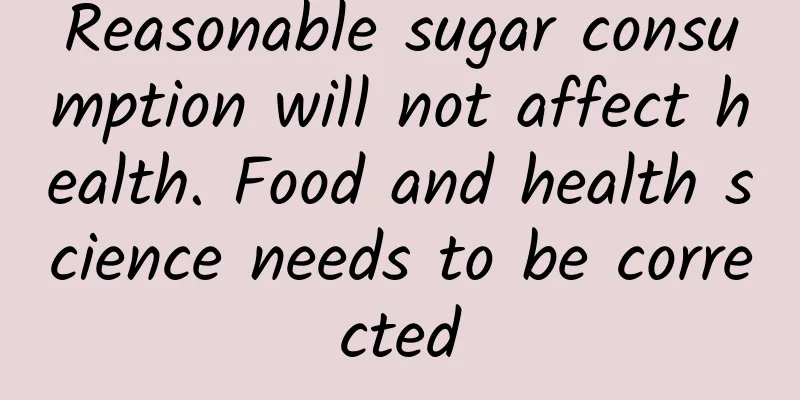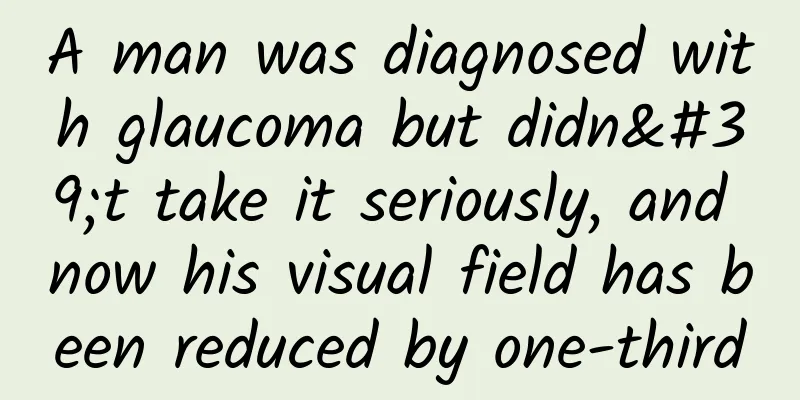Reasonable sugar consumption will not affect health. Food and health science needs to be corrected

|
On September 8, the first Food and Health Communication Conference was held in Beijing. The theme of this conference was "Science Communication Leading Healthy Consumption". It aimed to respond to the Healthy China Action, promote the healthy development of the food industry through science communication, and empower the public's healthy food consumption. Experts and industry insiders at the conference pointed out that food and health science communication is very important, and suggested that all sectors of society actively carry out science communication and use science communication to promote the healthy development of the food industry. Chinese people's sugar intake is not high, and eating sugar in a reasonable amount will not affect health The data on salt, oil and sugar intake of Chinese residents presented at the meeting showed that the daily salt intake of Chinese adults reached 9.3 grams, almost twice the recommended amount; the daily cooking oil intake per capita reached 43.2 grams, more than 40% higher than the recommended amount; the daily sugar intake per capita was 9.1 grams, lower than the recommended intake of 25 grams or 50 grams. In general, Chinese people do not eat much sugar at present, but the sugar intake data still needs to be continuously monitored. Experts at the meeting called on the food industry to speed up technological innovation and provide consumers with more choices while maintaining the taste. Chu Yibing, deputy director of the Science and Technology Communication Department of the Kexin Food and Health Information Exchange Center, introduced the survey results of Chinese residents' sugar control behavior at the meeting. Compared with "reducing salt" and "reducing oil", consumers tend to pay more attention to "reducing sugar". 43.2% of consumers believe that "sugar is harmful to health", and 68% of consumers believe that "they need to control sugar". Young people and people with weight anxiety have a stronger desire to control sugar. Chu Yibing said that sugar is not poison, but an essential nutrient for the human body. Excessive intake will affect the dietary structure. For most people who do not consume a lot of sugar, eating sugar in a reasonable amount will not affect their health. Diabetes is not caused by eating too much sugar. To lose weight, you should pay more attention to reducing salt. Many people are worried that eating too much sugar will lead to diabetes and obesity. In this regard, Chen Junshi, an academician of the Chinese Academy of Engineering, said that diabetes is not caused by eating too much sugar, but is a metabolic disease. The occurrence of diabetes is the result of the combined effects of genetics and the environment. It is a misunderstanding to simply attribute diabetes to sugar. The occurrence of diabetes should be prevented from many aspects. Academician Chen Junshi also pointed out that any form of excessive energy intake will lead to obesity, and it is incorrect to simply attribute the cause of obesity to sugar. The key to preventing obesity is to maintain energy balance. Only by consuming excess energy through physical activities can the risk of obesity be reduced. The survey found that consumers tend to pay more attention to the impact of sugar and oil on obesity, but ignore salt. Many studies at home and abroad have shown that a high-salt diet increases the risk of obesity. For those who want to lose weight, they should pay more attention to "reducing salt". Instead of worrying about "anti-glycation", it is better to take sun protection seriously Due to the many online propaganda that "eating sugar will cause glycation" and "glycation accelerates aging", people are afraid of sugar and have a sugar-phobic mentality. They believe that they need to quit sugar, cut off sugar, and "fight glycation" to achieve the purpose of anti-aging. Zhong Kai, director of the Kexin Food and Health Information Exchange Center, pointed out that blindly quitting sugar is not advisable. Foreign studies have found that long-term low-carb diets can affect the normal functioning of the human body, increase mortality, reduce life expectancy, and are extremely harmful to health. There are three main causes of aging: photoaging (ultraviolet rays), oxidative stress (free radicals), and glycation (AGES). Skin aging is a complex process, of which ultraviolet damage is the main cause of skin aging (over 70%). The human body is undergoing glycation reactions all the time, and it is simply unrealistic to rely on "anti-glycation" to fight aging. It is better to do a good job of sun protection and work harder on healthy diet and healthy lifestyle. Controlling sugar levels doesn’t require hard work, and sugar substitutes are also safe Data shows that the market penetration rate of sugar-free beverages has reached nearly 80%, and low-sugar and sugar-free products are increasingly favored by consumers. For those who want to control sugar intake but like sweets, using sweeteners to replace sugar in food and beverages is a good choice. Most sweeteners do not directly participate in human metabolism and do not increase energy intake, which can help people who need to control sugar intake reduce sugar intake while enjoying delicious food. Some people believe that frequent consumption of sweeteners will increase appetite, lead to obesity, and affect blood sugar. In this regard, the "Scientific Consensus on Food Sweeteners (2022)" issued by the Kexin Food and Health Information Exchange Center and other institutions pointed out that replacing added sugar with sweeteners can reduce energy intake under the premise that the total dietary amount remains unchanged. However, weight management depends on the total energy balance. Sweeteners are not diet pills, but an option to help people reduce sugar intake. If you rely on sweeteners to lose weight without changing your unhealthy diet and lifestyle, it will be difficult to achieve the goal of weight loss. The consensus also pointed out that sweeteners have little effect on blood sugar, and it has been applied to the dietary choices of diabetic patients. Both the "Guidelines for the Prevention and Treatment of Type 2 Diabetes in China" and the "Dietary Guidelines for Adult Diabetic Patients" indicate that it is safe for diabetic patients to consume non-nutritive sweetener foods and beverages appropriately. |
Recommend
Can drinking Chinese medicine remove pregnancy spots?
Many female friends will have pregnancy spots whe...
Can I have sex on the fourth day of my period?
Everyone knows that sexual intercourse during men...
When will Zhang Ziyi's Jiang Shan Gu Ren be broadcast? Which dynasty does Jiang Shan Gu Ren tell about?
I don't know if you still remember that Zhang...
What to do if your period is delayed for 18 days
Menstruation is a physiological cycle. Normal wom...
How big is the belly at 4 months?
Pregnant women are particularly cautious about th...
Is B-ultrasound accurate in measuring ovulation?
When it comes to B-ultrasound examination, many p...
Reasons and treatment methods for delayed menstruation
Menstruation is one of the closest friends of wom...
How to detect pelvic adhesions
How to detect pelvic adhesion? Let's not rush...
What is lower body pain?
The female lower body is a key protected area. Be...
What is the use of heparin calcium for pregnant women
What is the use of heparin calcium for pregnant w...
Woman with pain on left upper thigh
Pain in different parts of the human body implies...
How to maintain health for women in their thirties
A woman in her thirties is at an important stage ...
Does low estrogen affect pregnancy?
Low estrogen can cause problems such as irregular...
What is the difference between Lancome red tube 507 and black tube 507? Lancome 507 black tube and red tube test color comparison
Lancome Red 507 was actually a limited edition ne...
What should I do if I have ovulation bleeding?
It is very normal for women to experience vaginal...

![[Medical Q&A] Which exercises are considered aerobic exercises?](/upload/images/67f0e51ccc585.webp)







